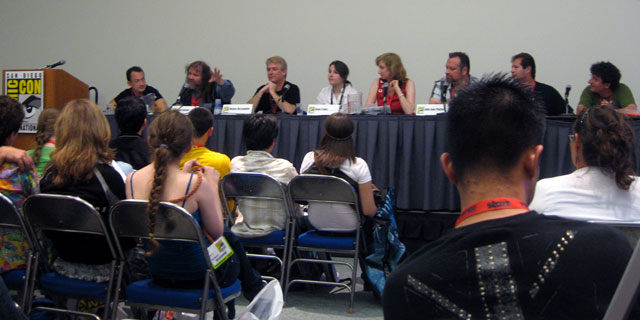So there's this Space Marine
We explore the gaming creative process and its difficulties evolving compared to literature, TV and film.
What’s strange about the games industry is that unlike any other media that has reached the mass populous, its creative process has had a hard time evolving compared to literature, TV and film. We had silence to speech and black and white to colour but that’s in regards to technology. As far as the production process goes, you have to have a premise, treatment, sample script, or novel extract. All these elements give a taste of the show, film or book you’re putting into production. With that, companies and agents can assess whether it’s worth giving the go ahead to. This is pretty fair, that is when you don’t factor in all the reality and creativity bullsh*t companies are more willing to commission these days.
For an enthralling novel or film, being able to write is essential; it’s what keeps you turning the page (unless it’s sex, action or violence where people tend to switch off). Writing is at its purest form in literature because there are no moving images, boobs or other bright shiny things to distract your attention. You’re brain is more introverted while reading then when you watch a film or play a game. With films you have an out of body experience because you sit there and become a motionless sack of flesh while your mind runs around la-la land. With games your brain is focused on playing the damn thing and channeling it from the pad to the screen. You’re multitasking in a sense, like juggling while riding a unicycle.
How does this relate to writing you may think? It’s coming, I promise. I believe there are two fundamentals when analyzing games writing.
 A game writers panel at ComicCon.
A game writers panel at ComicCon.Let me start by talking about the state of mind you’re in while playing a game. At the beginning of a game I can’t wait to see the movie at the start, setting the scene, plot and meeting characters. It’s a new adventure. It lasts about five minutes and you want the thing to start already. But it’s a tutorial, which takes a further ten minutes and treating the player like they just arrived on the planet. This is needed though so you bear it. Finally you get in there and can play. Story comes up through the game, you get to know your characters and decide after not so long if you care about what happens and what they have to say. So you either tune in or tune out.
I’ll use two examples of big games released in the past six months. If you look at Bayonetta, the plot comes across as somewhat original (a reverse of Devil May Cry if you think about it). The dialogue is extremely clunky sometimes and caused me to cringe, especially when discussing the protagonists past. The characters were heavily stereotyped but that was part of its charm and action sequences were beautifully choreographed; the gaming equivalent of a popcorn movie. I didn’t really care about the characters that much, finding myself just wanting to get into the action. If we then look at Dragon Age which had a very archetypal plot but more than made up with it by having well developed characters that I was actually interested in, thus propelling me to keep playing the game. They both have their faults, but you could clearly tell which one had the better writing team and what precedence it took in relation to design.
 Comments
Comments









